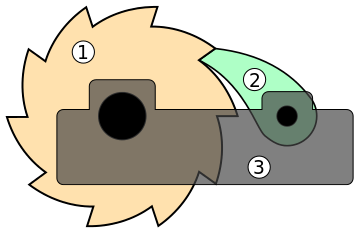The steemit advantage
One thing throughout the history of the internet that has always motivated users to advance their content into cryptographic form and attract the most amount of digital viewing impressions has always been anonymity. The viewers and participants of this platform are characters of themselves either through use of language video sound or picture we all have the same chance to relay our thoughts through this network. Some of us may choose to remain anonymous and some of us choose to become an online image of themselves. Both types of users still provide a unique story with their data. Welcome to the future! While other websites have method of classification we have value to denote what posts are supported by the community and what directions we should take in our lives.
The power of this rewards mechanism has the potential to create huge demand for the currency on which it runs (steem/sbd) and the prices will continue to ratchet up. 
The difference in viewing content posted by your steemit account and your twitter account is astronomical, Twitter followers can be bought by the thousand for pennies steem accounts cost almost $50 now limiting stakes per person like a limited amount of seats at a large gaming table that users call the reward pool. The economic opportunity for buying in is scaleable to produce the most profit per person based on their time spent using the platform and not the size of the actual investment. The motivation to tell others in person about things you have seen here is greater because of the accessibility to the average user. New users create a feedback loop of this effect.
Recently Max Keiser addressed the massive losses seen my bitcoin holders over the holidays and made an import reference to the importance of the original goals outlined in the satoshi whitepaper and how the currency now is different than the original intentions. When stating this he also deferred to Eric Hughes Cypherpunk's Manifesto
A Cypherpunk's Manifesto
by Eric Hughes
Privacy is necessary for an open society in the electronic age. Privacy is not secrecy. A private matter is something one doesn't want the whole world to know, but a secret matter is something one doesn't want anybody to know. Privacy is the power to selectively reveal oneself to the world.If two parties have some sort of dealings, then each has a memory of their interaction. Each party can speak about their own memory of this; how could anyone prevent it? One could pass laws against it, but the freedom of speech, even more than privacy, is fundamental to an open society; we seek not to restrict any speech at all. If many parties speak together in the same forum, each can speak to all the others and aggregate together knowledge about individuals and other parties. The power of electronic communications has enabled such group speech, and it will not go away merely because we might want it to.
Since we desire privacy, we must ensure that each party to a transaction have knowledge only of that which is directly necessary for that transaction. Since any information can be spoken of, we must ensure that we reveal as little as possible. In most cases personal identity is not salient. When I purchase a magazine at a store and hand cash to the clerk, there is no need to know who I am. When I ask my electronic mail provider to send and receive messages, my provider need not know to whom I am speaking or what I am saying or what others are saying to me; my provider only need know how to get the message there and how much I owe them in fees. When my identity is revealed by the underlying mechanism of the transaction, I have no privacy. I cannot here selectively reveal myself; I must always reveal myself.
Therefore, privacy in an open society requires anonymous transaction systems. Until now, cash has been the primary such system. An anonymous transaction system is not a secret transaction system. An anonymous system empowers individuals to reveal their identity when desired and only when desired; this is the essence of privacy.
Privacy in an open society also requires cryptography. If I say something, I want it heard only by those for whom I intend it. If the content of my speech is available to the world, I have no privacy. To encrypt is to indicate the desire for privacy, and to encrypt with weak cryptography is to indicate not too much desire for privacy. Furthermore, to reveal one's identity with assurance when the default is anonymity requires the cryptographic signature.
We cannot expect governments, corporations, or other large, faceless organizations to grant us privacy out of their beneficence. It is to their advantage to speak of us, and we should expect that they will speak. To try to prevent their speech is to fight against the realities of information. Information does not just want to be free, it longs to be free. Information expands to fill the available storage space. Information is Rumor's younger, stronger cousin; Information is fleeter of foot, has more eyes, knows more, and understands less than Rumor.
We must defend our own privacy if we expect to have any. We must come together and create systems which allow anonymous transactions to take place. People have been defending their own privacy for centuries with whispers, darkness, envelopes, closed doors, secret handshakes, and couriers. The technologies of the past did not allow for strong privacy, but electronic technologies do.
We the Cypherpunks are dedicated to building anonymous systems. We are defending our privacy with cryptography, with anonymous mail forwarding systems, with digital signatures, and with electronic money.
Cypherpunks write code. We know that someone has to write software to defend privacy, and since we can't get privacy unless we all do, we're going to write it. We publish our code so that our fellow Cypherpunks may practice and play with it. Our code is free for all to use, worldwide. We don't much care if you don't approve of the software we write. We know that software can't be destroyed and that a widely dispersed system can't be shut down.
Cypherpunks deplore regulations on cryptography, for encryption is fundamentally a private act. The act of encryption, in fact, removes information from the public realm. Even laws against cryptography reach only so far as a nation's border and the arm of its violence. Cryptography will ineluctably spread over the whole globe, and with it the anonymous transactions systems that it makes possible.
For privacy to be widespread it must be part of a social contract. People must come and together deploy these systems for the common good. Privacy only extends so far as the cooperation of one's fellows in society. We the Cypherpunks seek your questions and your concerns and hope we may engage you so that we do not deceive ourselves. We will not, however, be moved out of our course because some may disagree with our goals.
The Cypherpunks are actively engaged in making the networks safer for privacy. Let us proceed together apace.
Onward.
Eric Hughes [email protected]
9 March 1993
It seems like this dynamic is always a popular one with internet users. Promote the use of steemit as an anonymous block-chain because there is nothing preventing you from using it as such. Meanwhile the harah of Bit coin continues...
Max Keiser CASH (MKC coin #MK) is the real Keiser Report
#rt Justifies overconfident investor losses and explains digital consumer confidence levels in this new MKC report
MKC is born
Never mind bit coin when the mainstream is focused there steem will begin to dominate the internet.

Only 600 spots to go people! Re steem & vote this for a stake in my new #MKC ico!

VOTED 0.025 AND RESTEEMED TO 630 FOLLOWERS
Congratulations @godo! You have completed some achievement on Steemit and have been rewarded with new badge(s) :
Click on any badge to view your own Board of Honor on SteemitBoard.
For more information about SteemitBoard, click here
If you no longer want to receive notifications, reply to this comment with the word
STOP